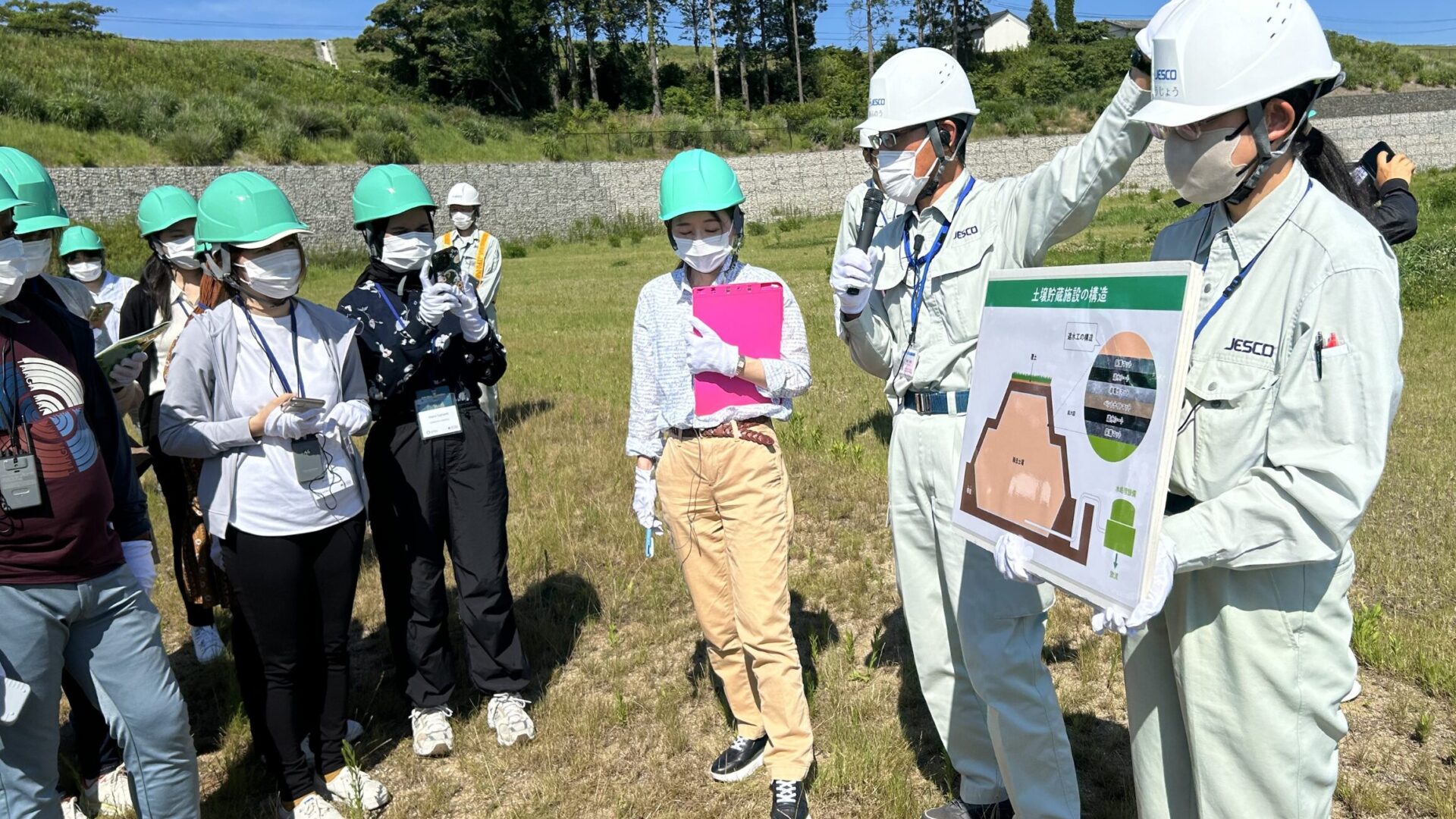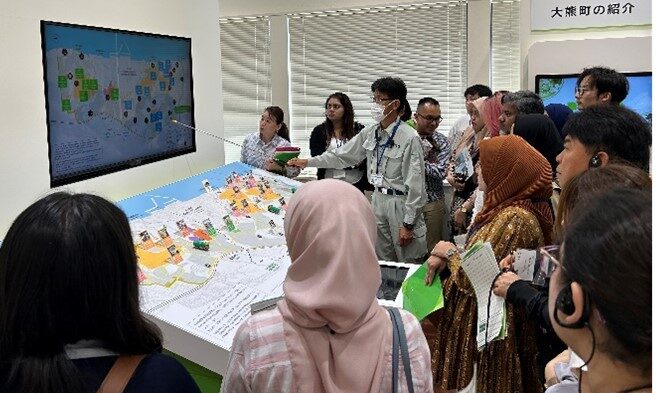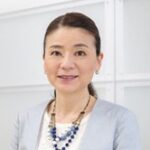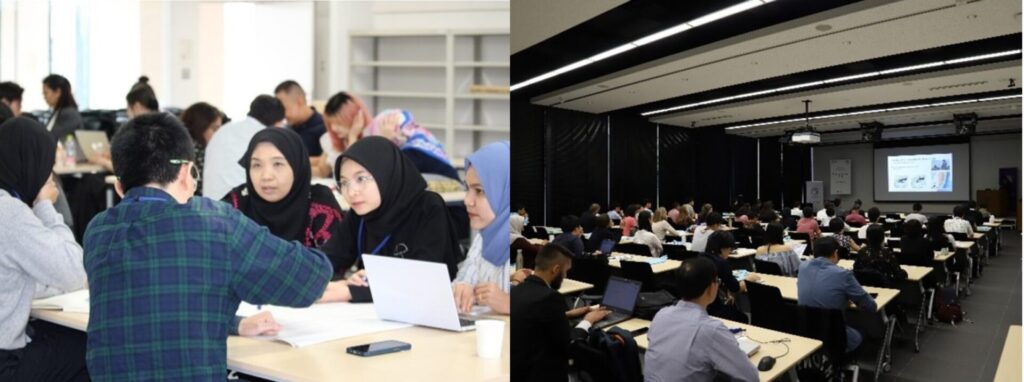
APRU’s 2024 Summer School is a landmark event of the APRU-IRIDeS Multi-Hazard Program.
[Hong Kong, Oct 24, 2024]: In 2023, 21% more natural disasters were recorded than in 2013, resulting in 86,743 fatalities. With this data as backdrop, the Association of Pacific Rim Universities (APRU) and the International Research Institute of Disaster Science (IRIDeS), Tohoku University launched the Multi-Hazards (MH) Program to leverage the research capabilities of APRU universities to enhance disaster risk and reduction knowledge, share best practices for managing risks on campuses, and contribute to global policymaking. APRU believes universities and research institutions have an important role to play toward helping reduce disaster vulnerability and enhance management capacity.
The Summer School is a landmark event of the APRU Multi-Hazards Program and was launched in April 2013 to advance disaster risk reduction (DRR) research and informs international policy. Over the past 12 years, APRU has consistently spearheaded diverse initiatives to bolster DRR efforts. This year, the school brought together 35 students from 13 universities across 9 economies in the Asia-Pacific region, on their first field trip to Fukushima – a prefecture still in recovery from the nuclear disaster caused by the 2011 megathrust earthquake and tsunami. The trip provided an opportunity for participants to learn from Fukushima’s past and how this prefecture is enhancing disaster preparedness and management capacities to be better equipped for the future.
An eye-opening lesson in witnessing the aftermath and recovery of Fukushima
Fukushima’s atmospheric radiation levels today are like those of other major cities around the world and is safe for visitors and residents [source: Fukushima Travel]. The students visited the Great East Japan Earthquake and Nuclear Disaster Memorial Museum, to experience first-hand the reality of the unprecedented 2011 triple disasters in this prefecture caused by an earthquake, a tsunami and then Fukushima Daiichi Nuclear Power Plant accident.

APRU’s 2024 Summer School brought together 35 students from 13 universities across 9 economies in the Asia-Pacific region, on their first field trip to Fukushima, Japan.
Emphasising intersectionality and interdisciplinarity, the summer school delved into various regional and global challenges. Harnessing the collective capabilities of APRU universities for interdisciplinary research in disaster management, students attended talks by the professors from different universities and representatives of local government and NGOs, underscoring the role of different stakeholders in contributing to disaster risk reduction and the importance of working with multi-sectoral stakeholders and experts across the disciplines. Participants also worked as a group to prepare presentations on earthquakes and DRR to showcase their knowledge gained during the trip.
Professor Takako Izumi, International Research Institute of Disaster Science, Tohoku University and Program Director of the APRU Multi-Hazards Program, said, “Natural disasters are becoming more frequent due to challenges like climate change, population density, urbanisation, and environmental degradation. To tackle these global issues, traditional engineering methods are not enough. That’s where we believe education is so crucial. The APRU Multi-Hazards 2024 Summer School provides a mix of science and social science aspects to guide our future leaders to understand the importance of intersectionality and interdisciplinarity in tackling global challenges.”

Professor Takako Izumi plays a central role in the APRU-IRIDeS Multi-Hazard Program and organises various international events such as Summer Schools, workshops and symposia in collaboration with APRU member universities and international organizations.
The Fukushima incident serves as an important lesson and case study of the significance of disaster preparedness. The accident, stemming from cooling function loss due to tsunami flooding, was exacerbated by a lack of risk understanding and preparedness measures. This scenario, common to many disasters, underscores the significance of readiness. As disasters strike, one can only respond effectively to the extent they are prepared.
Mr. Takeshi Komino from CWS Japan / Asian Disaster Reduction and Response Network (ADRRN), who contributed to the program as a lecturer in key Multi-Hazards events, remarked, “This trip highlights the vital importance of drawing lessons from historical disaster events and collaborating with a range of stakeholders to achieve our common goal of a safer tomorrow. The partnership between NGOs and academia is essential in this endeavour. In times of crisis, our resilience is not just measured by our ability to respond quickly, but also by our preparedness and proactive strategies. By fostering continuous learning and collaboration between NGOs and academic institutions, we can transform challenges into opportunities, ultimately strengthening our collective capacity to face future risks.”

Mr. Takeshi Komino, General,Secretary, CWS Japan and Vice President, ADRRN
12 years of efforts to lower disaster vulnerability

The Multi-Hazards program organized a series of seminars and group activities for participants to discuss and share their insights on disaster risk reduction from various perspectives.
Over the past 12 years, the program has organised summer schools and symposiums annually, as well as conducted campus safety workshops, various technical sessions at international and regional events such as UNWCDRR, UN Global Platform for DRR, bringing together students from different region and disciplines to study critical disaster risk reduction strategies and fostering a spirit of international cooperation. Despite the COVID-19 pandemic interrupting in-person gatherings, the summer school has run continuously since its founding, benefiting a total of 265 participants from 75 institutions across 25 economies, including Japan, China, The USA, Indonesia, Singapore, the Philippines and Australia.
Professor Chiung-wen (Julia) Hsu from National Chengchi University in Taiwan said, “Attending the Summer School in 2016 was truly enlightening, which enhanced my understanding of disaster research. Through the APRU network, I accessed webinars, seminars, and newsletters that broadened my perspectives and facilitated valuable new connections. I am eager to contribute my communication expertise to promote social inclusion and gender equality in disaster risk reduction within this community.”

Professor Chiung-wen (Julia) Hsu, Department of Radio and Television, College of Communication, National Chengchi University, Taiwan
Building on this success, the program will continue educating future generations on DRR and other intricate global issues. Currently, the program has initiated more thematic and focused workshops, with upcoming collaborations with a diverse range of experts to tackle the growing complexities of global issues and effectively shape international policies.
– END –
High-resolution images can be downloaded here:
Link: https://gallery.sinclaircomms.com/gallery/
Password: talkofthetown
About APRU:
As a network of leading universities linking the Americas, Asia, and Australasia, APRU (the Association of Pacific Rim Universities) brings together thought leaders, researchers, and policymakers to exchange ideas and collaborate on practical solutions to the challenges of the 21st century. It leverages its members’ collective education and research capabilities into the international public policy process. APRU’s strategic priorities highlight the following three directions:
1. providing a neutral platform for high-level policy dialogue;
2. exploring innovative solutions for a sustainable future;
3. supporting diversity, inclusion, and minorities.
